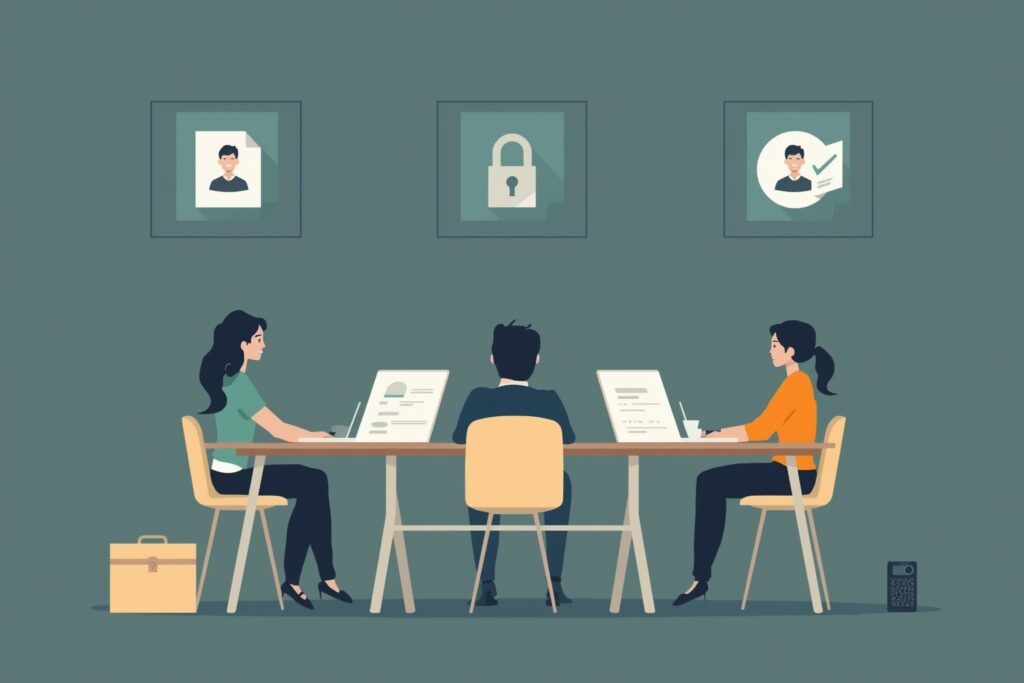Introduction
As businesses increasingly embrace remote work, the challenge of maintaining security for financial operations intensifies. Hiring remote finance talent—whether a CFO, accountant, or bookkeeper—requires a robust security framework. This article outlines essential security components: access levels, audit trails, and effective backup strategies. By implementing these practices, you can protect your financial data and maintain compliance.
1. Implement the Principle of Least Privilege
The principle of least privilege (PoLP) is a crucial security measure in remote finance teams. This means giving employees the minimum level of access necessary to perform their job functions.
- Role-Based Access Control (RBAC): Assign access rights based on specific roles. For instance, a bookkeeper may need access to accounts payable but not to sensitive payroll information.
- Regular Reviews: Periodically review access permissions to ensure they align with current job responsibilities. This prevents employees from retaining access they no longer need.
2. Establish Strong Authentication Protocols
To safeguard sensitive financial information, it’s essential to implement strong authentication methods.
- Multi-Factor Authentication (MFA): Require employees to provide two or more verification factors to gain access to financial systems.
- Complex Password Policies: Enforce the use of strong passwords that include a mix of letters, numbers, and symbols.
3. Maintain Detailed Audit Trails
Audit trails are records that detail who accessed what information and when. They are vital for accountability and compliance.
- Automated Logging: Use software that automatically logs user activities, including logins, data changes, and file accesses.
- Regular Audits: Schedule routine audits to review logs for unauthorized access or suspicious activity. Establish protocols for addressing any anomalies.
4. Secure Data with Encryption
Data encryption is a critical aspect of protecting sensitive financial information, especially when accessed remotely.
- At-Rest Encryption: Ensure that data stored on servers is encrypted to prevent unauthorized access.
- In-Transit Encryption: Use secure protocols (like HTTPS or VPNs) for data transmission to protect information as it moves over networks.
5. Implement Regular Backup Procedures
Regular backups are essential for data recovery in case of loss or breach. Here’s how to establish effective backup procedures:
- Automated Backups: Set up automated backups to ensure financial data is regularly saved without manual intervention.
- Offsite Storage: Store backups in a secure offsite location or use cloud-based solutions to protect against physical threats.
6. Choose Reputable Vendors
When hiring remote finance talent or using third-party services, vet vendors to ensure they comply with stringent security measures.
- Vendor Security Assessments: Conduct thorough assessments of potential vendors, focusing on their security protocols and past incidents.
- Contracts and SLAs: Ensure contracts include clauses that hold vendors accountable for data security breaches and outline exit strategies for data retrieval.
Case Example: A Small Business’s Journey to Secure Remote Finance
A small marketing agency decided to hire a remote bookkeeper to manage their finances. Initially, they faced challenges in securing sensitive data. After implementing the principle of least privilege, they limited the bookkeeper’s access to only the necessary financial systems. They also set up multi-factor authentication and regular backups. Within a few months, the agency noticed a significant reduction in data access issues and felt confident in their financial operations.
Conclusion
Securing your remote finance team is crucial for protecting your business’s financial integrity. By implementing access controls, maintaining audit trails, using encryption, establishing backup protocols, and vetting vendors, you can create a secure environment for managing your finances.
TL;DR
- Implement the principle of least privilege (PoLP).
- Establish strong authentication protocols, like MFA.
- Maintain detailed audit trails for accountability.
- Secure data with encryption at rest and in transit.
- Implement regular automated backup procedures.
- Choose reputable vendors with robust security measures.
If you’re ready to enhance your financial security, hire a remote CFO or hire a remote bookkeeper today.








Leave a Reply